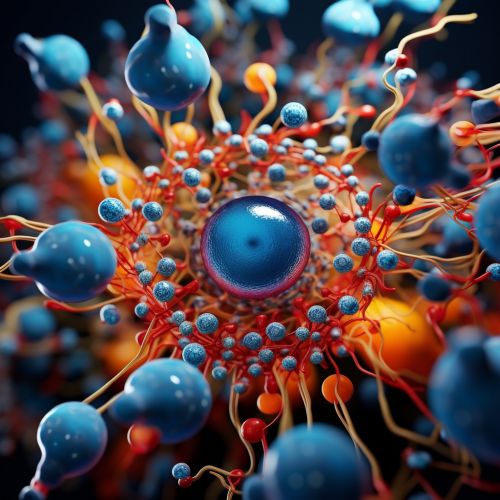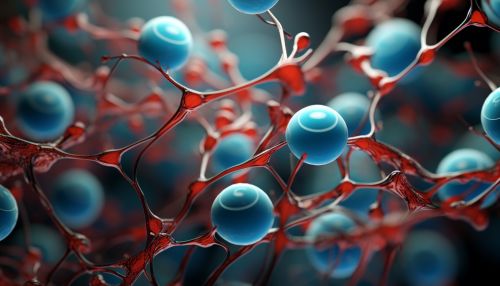Peptide hormones
Introduction
Peptide hormones are a type of hormone that are composed of short chains of amino acids. These hormones are secreted by various glands in the body and play a crucial role in the regulation of numerous physiological processes. Unlike steroid hormones, which can pass through the cell membrane, peptide hormones must bind to specific receptors on the cell surface to exert their effects.


Structure and Synthesis
Peptide hormones are synthesized in the same way as all other proteins, through the process of protein biosynthesis. This process involves the transcription of DNA into mRNA, which is then translated into a chain of amino acids. The chain is then folded into a specific three-dimensional shape, which determines the hormone's function.
The structure of peptide hormones varies greatly, ranging from small peptides with just a few amino acids to large proteins. Despite this variety, all peptide hormones share a common characteristic: they are composed of amino acids linked by peptide bonds. This structure is crucial for their function, as it allows them to bind to specific receptors on the surface of cells.
Function and Mechanism of Action
Peptide hormones function by binding to specific receptors on the surface of cells. This binding triggers a cascade of intracellular events, leading to the desired physiological response. This process is known as signal transduction.
The mechanism of action of peptide hormones is different from that of steroid hormones. While steroid hormones can pass through the cell membrane and directly interact with the cell's DNA, peptide hormones cannot. Instead, they bind to receptors on the cell surface, triggering a series of events inside the cell that ultimately lead to the desired response.
Classification
Peptide hormones can be classified based on their structure, function, or the gland that secretes them. Some of the major classes of peptide hormones include:
- Insulin and glucagon, which are secreted by the pancreas and regulate blood sugar levels.
- Growth hormone, which is secreted by the pituitary gland and regulates growth and development.
- Antidiuretic hormone and oxytocin, which are secreted by the posterior pituitary gland and regulate water balance and childbirth, respectively.
- Gonadotropins, which are secreted by the anterior pituitary gland and regulate the reproductive system.
Clinical Significance
Peptide hormones play a crucial role in many physiological processes, and abnormalities in their function can lead to a variety of diseases. For example, diabetes mellitus is caused by a deficiency of insulin, while acromegaly is caused by an excess of growth hormone.
In addition to their role in disease, peptide hormones are also important in medicine. They can be used as therapeutic agents to treat a variety of conditions, such as diabetes, growth disorders, and infertility. Furthermore, the study of peptide hormones can provide insights into the mechanisms of disease and lead to the development of new treatments.
